Filter by

What should schools teach? : disciplines, subjects and the pursuit of truth
The design of school curriculums involves deep thought about the nature of knowledge and its value to learners and society. It is a serious responsibility that raises a number of questions. What is knowledge for? What knowledge is important for children to learn? How do we decide what knowledge matters in each school subject? And how far should the knowledge we teach in school be related to aca…
- Edition
- ed. 2
- ISBN/ISSN
- 9781787358744
- Collation
- 262 p. : col, ill.
- Series Title
- -
- Call Number
- 375.001 CUT w
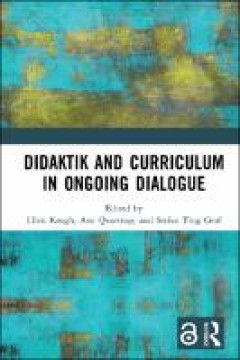
Didaktik and curriculum in ongoing dialogue
Didaktik and Curriculum in Ongoing Dialogue revives the dialogue between the continental European Didaktik tradition and the Anglo-Saxon tradition of curriculum. It highlights important research findings that bridge cultural differences and argues for a mutual exchange and understanding of ideas. Through analyses of shared conditions and cultural differences, the book invites a critical stance …
- Edition
- -
- ISBN/ISSN
- 9781003099390
- Collation
- XV, 261 p.
- Series Title
- -
- Call Number
- 375.001 DID d
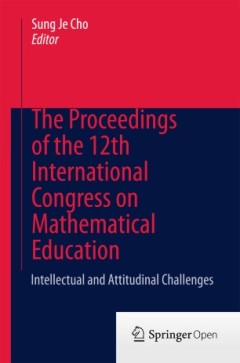
The proceedings of the 12th International Congress on Mathematical Education …
This book comprises the Proceedings of the 12th International Congress on Mathematical Education (ICME-12), which was held at COEX in Seoul, Korea, from July 8th to 15th, 2012. ICME-12 brought together 4700 experts from 100 countries, working to understand all of the intellectual and attitudinal challenges in the subject of mathematics education as a multidisciplinary research and practice. Thi…
- Edition
- -
- ISBN/ISSN
- 9783319126883
- Collation
- xviii, 649p. : ill.
- Series Title
- -
- Call Number
- 510.71 CHO t
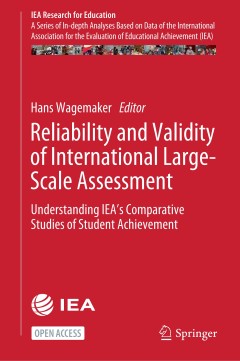
Reliability and validity of international large-scale assessment : understand…
This open access book describes and reviews the development of the quality control mechanisms and methodologies associated with IEA’s extensive program of educational research. A group of renowned international researchers, directly involved in the design and execution of IEA’s international large-scale assessments (ILSAs), describe the operational and quality control procedures that are em…
- Edition
- -
- ISBN/ISSN
- 9783030530815
- Collation
- xi, 227p. : ill.
- Series Title
- -
- Call Number
- 371.26013 REL r
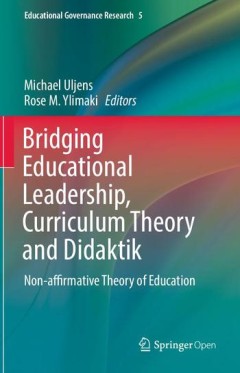
Bridging educational leadership, curriculum theory and didaktik : non-affirma…
This volume argues for the need of a common ground that bridges leadership studies, curriculum theory, and Didaktik. It proposes a non-affirmative education theory and its core concepts along with discursive institutionalism as an analytical tool to bridge these fields. It concludes with implications of its coherent theoretical framing for future empirical research.Recent neoliberal policies an…
- Edition
- -
- ISBN/ISSN
- 9783319586502
- Collation
- xx, 474p. : ill.
- Series Title
- -
- Call Number
- 375 BRI b
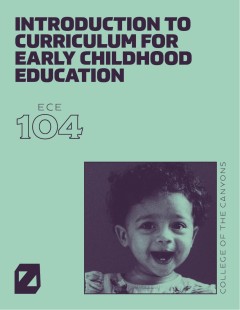
Introduction to curriculum for early childhood education
Welcome to learning about how to effectively plan curriculum for young children. This textbook will address: - Developing curriculum through the planning cycle - Theories that inform what we know about how children learn and the best ways for teachers to support learning - The three components of developmentally appropriate practice - Importance and value of play and intentional teaching …
- Edition
- -
- ISBN/ISSN
- -
- Collation
- 514p. : ill.
- Series Title
- -
- Call Number
- 372.19 PAR i

Education for democratic intercultural citizenship
Education for Democratic Intercultural Citizenship (EDIC) is very relevant in contemporary societies. Seven European universities are working together in developing a curriculum to prepare their students for this important academic, societal and political task. The book present their theories and practices. Readership: Scholars in the field of educational studies, in particular moral education …
- Edition
- -
- ISBN/ISSN
- 9789004411944
- Collation
- viii, 194 p.
- Series Title
- -
- Call Number
- 370.117 EDU e
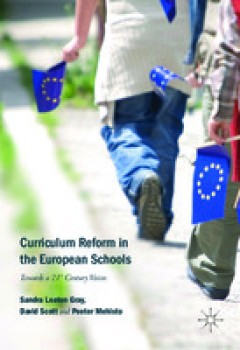
Curriculum reform in the European schools : towards a 21st century vision
This open access book examines the modern role of the European School system within the European Union, at a time when the global economy demands a new vision for contemporary education. The European schools are currently in a state of crisis: their 60-year-old tradition of bilingual and multilingual education is being strained by rapid EU expansion and the removal of English speaking teachers …
- Edition
- -
- ISBN/ISSN
- 9783319714646
- Collation
- xv, 183p. : ill.
- Series Title
- -
- Call Number
- 375 GRA c
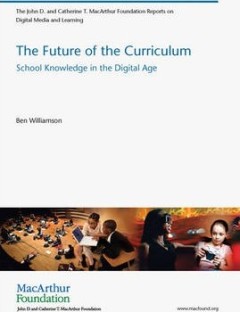
The future of the curriculum : school knowledge in the digital age
An examination of curriculum innovations that are shaped by new ideas about digital media and learning.Although ideas about digital media and learning have become an important area for educational research, little attention has been given to the practical and conceptual implications for the school curriculum. In this book, Ben Williamson examines a series of contemporary curriculum innovations …
- Edition
- -
- ISBN/ISSN
- 9780262518826
- Collation
- vii, 139p. : ill.
- Series Title
- -
- Call Number
- 375.001 WIL f
 Computer Science, Information & General Works
Computer Science, Information & General Works  Philosophy & Psychology
Philosophy & Psychology  Religion
Religion  Social Sciences
Social Sciences  Language
Language  Pure Science
Pure Science  Applied Sciences
Applied Sciences  Art & Recreation
Art & Recreation  Literature
Literature  History & Geography
History & Geography